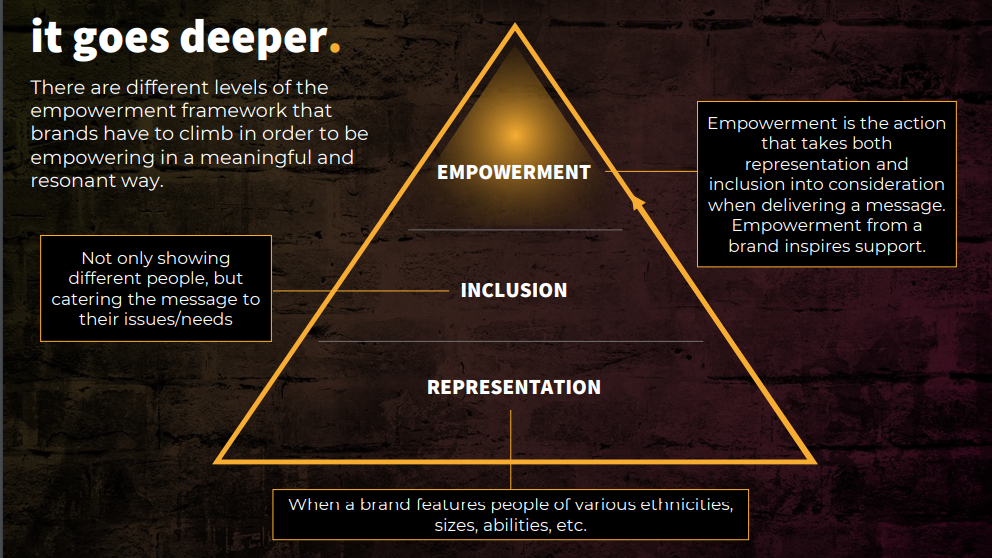‘Empowerment’ Key With Young Consumers: Fuse
Brands that take positions have an opportunity to connect, study says

The smarter way to stay on top of broadcasting and cable industry. Sign up below
You are now subscribed
Your newsletter sign-up was successful
Younger consumers want more than representation and inclusion from brands, they want “empowerment,” according to a new study from Fuse Media.
Looking at a multicultural millennial and Gen Z audience, Fuse said that when done properly, empowerment takes representation and inclusion to the next level by inspiring action and support of these consumers.
“Our previous research showed the importance of inclusivity to young people, as a way to their goal of unity, but there is an opportunity for brands to do more than simply appear inclusive or diverse,” said Michelle Auguste, Fuse Media VP of research. “If done authentically and transparently, brands that speak up and take a stand can empower and engage with these consumers on the next level.”

Among young consumers, 51% considered empowerment more of a social need, as compared to a personal need. With older generations, empowerment was seen as more of a personal need. Empowerment is built with confidence, being educated and informed, and being in control. Only one in five among those studied described themselves as being empowered.
The notion of empowerment is important for brands, the Fuse study found, despite possible pitfalls. Brands have to avoid the appearance of capitalizing on trends or pandering. Brands also have to be careful not to disempower consumers by challenging their values.
When a brand empowers the consumer, 6 in 10 said they felt more positively about the brand and 1 in 2 purchase the product or service, or tell a friend or relative about that brand.
Brands seen as “challengers” and “loud” tend to also be seen as the most outwardly empowering, by being outspoken and taking risks to inspire change and new thought.
The smarter way to stay on top of broadcasting and cable industry. Sign up below
Nike, Dove, Adidas, Disney, Amazon, Weight Watchers and Fenty Beauty are the top seven most-empowering brands – seen as making exceptional efforts here.
In the report, Target was praised for authentic inclusion of different types of people--plus size men, disabled individuals--while offering products at a relatively accessible price point.
“The message from young consumers is loud and clear: for brands wanting to bond and build a relationship with multicultural millennials and Gen Z – be bold or be benign, but do not block,” said Fuse Media head of marketing Mark McIntire. “Brands that take positions have a tremendous opportunity to connect at a higher level with this audience. But it isn’t always a true necessity. The research shows that for some categories the smart move is to focus on the value proposition of their product or service. Problems arise for brands perceived to be trying too hard, or inauthentically, thus being seen as disempowering to potential brand champions.”
Jon has been business editor of Broadcasting+Cable since 2010. He focuses on revenue-generating activities, including advertising and distribution, as well as executive intrigue and merger and acquisition activity. Just about any story is fair game, if a dollar sign can make its way into the article. Before B+C, Jon covered the industry for TVWeek, Cable World, Electronic Media, Advertising Age and The New York Post. A native New Yorker, Jon is hiding in plain sight in the suburbs of Chicago.

